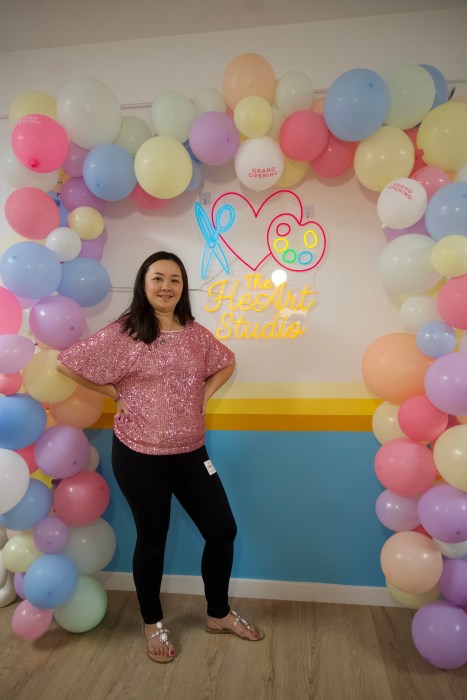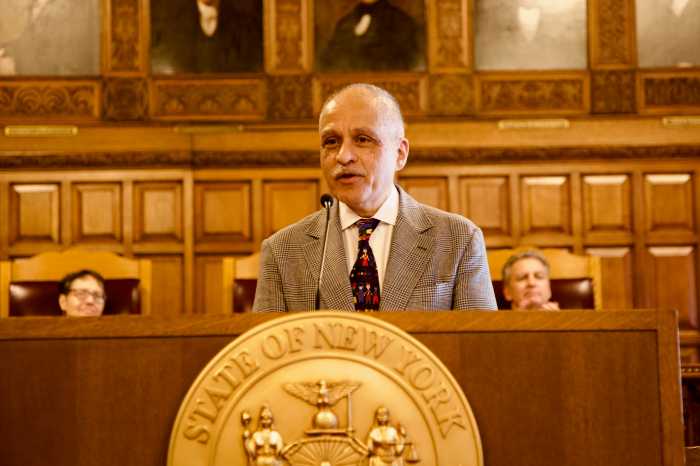The mental health crisis that has swept the country in recent years continues to surge, with children and teens hit especially hard. In response, local therapist and Long Island Counseling practice owner Stacy Pellettieri has expanded her group of counseling centers to five Long Island locations, determined to meet the demand that shows no signs of slowing down.
“We just opened the Huntington and Rockville Centre locations in February,” said Pellettieri, a licensed clinical social worker with more than 30 years of experience. “We now have locations in East Meadow, Rockville Centre, Jericho (Right Path Counseling), Melville and Huntington. It’s grown out of sheer necessity.”
Pellettieri co-owns the practice with longtime colleague Lorissa McFall. What began 13 years ago as a modest partnership between two therapists has now grown to employ nearly 90 clinicians.

“The mental health crisis is real,” Pellettieri said. “People use the term a lot, but I’ll tell you — anxiety is through the roof, trauma is everywhere and we are doing the best we can to meet people where they are.”
Long Island Counseling specializes in anxiety, trauma, ADHD, OCD, depression and executive function delays, using evidence-based approaches including EMDR (Eye Movement Desensitization and Reprocessing). The practice treats clients ranging from age 5 to the elderly, with an increasing number of younger patients coming through the doors.
“Right now, we are treating more children than adults,” she said. “Covid disrupted child development. The ‘Covid babies’ are now entering school — kindergarten, first, second grade — and they’re behind socially and emotionally.”
Social media, Pellettieri emphasized, is another major contributor to the decline in youth mental health.
“We are more connected than ever because of technology, but people feel more isolated than ever,” she said. “Kids today don’t get the safe space we used to have after school. They’re on group chats, social media — it’s constant exposure to peer dynamics and stress, without a break. And no one is supervising it.”
She offered a powerful analogy: “Would you let a group of 10-year-olds roam the neighborhood unsupervised for hours every day? Of course not. But we do just that by letting them sit on their devices in these unsupervised digital environments. They’re not equipped to handle it.”
That persistent dysregulation — often manifesting in anxiety, depression or school refusal — is something her clinicians see daily.
“Some of our work has shifted into the schools themselves,” Pellettieri said.
Through a newly formed division, District Support Services, her team contracts with BOCES to provide professional development, ADHD training, trauma-informed strategies and crisis response services directly to schools.
“There’s a real disconnect between schools and parents,” she said. “Everyone’s overwhelmed — the staff, the families, the kids. We’re trying to be that bridge and offer solutions.”
The practice has also embraced technology to deliver care more flexibly and accessibly.
“We take calls and emails through our website. Parents can reach out however they’re most comfortable. We’ll match them with the right therapist, location and schedule,” she said. “And because we have so many clinicians, we can often accommodate entire families — each member with their own therapist, sometimes even at the same time.”

The need for therapy has never been more urgent, with inquiries coming in at a staggering volume.
“We get 20 to 30 calls a day,” Pellettieri said. “And more than half are from parents seeking help for their kids.”
The overwhelming demand has shifted Pellettieri’s role from individual therapy to overseeing the broader practice.
“I just wanted to be a therapist, work from home, raise a family and help people,” she said. “Now, I feel a deep sense of responsibility. I know things that can help. I have to do more.”
The expanding mental health conversation — especially in educational settings — is encouraging, but stigma still looms large, especially for parents.
“People feel like they’re the only ones dealing with it,” she said. “But everyone’s going through this. Everyone. Parents just don’t talk about it enough. We need more public conversations.”
Pellettieri emphasized that reaching out for support is an act of strength.
“There is no shame in reaching out. It’s the most courageous thing a parent or individual can do,” she said. “We’re here. And we’re ready to help.”
Visit www.LongIslandCounselingServices.com for more information or to schedule an appointment. Visit www.DistrictSupportServices.com for school-based work or call 516-247-6457.
About the Founders
Stacy Pellettieri, LCSW-R, founded Long Island Counseling to create a compassionate, inclusive space for clients of all ages. An ADHD Certified Clinician, she integrates trauma-informed care, EMDR, DBT, CBT, ACT, EFT and IFS into her work. In addition to her clinical practice, she leads supervision and outreach efforts to support the evolving needs of the community.
Lorissa McFall, LCSW-R, brings 20 years of experience to her work with individuals, couples and families. She tailors treatment to each client’s unique needs using CBT, DBT, ACT, IFS and psychodynamic approaches, with a special focus on women’s issues, anxiety and depression.

































